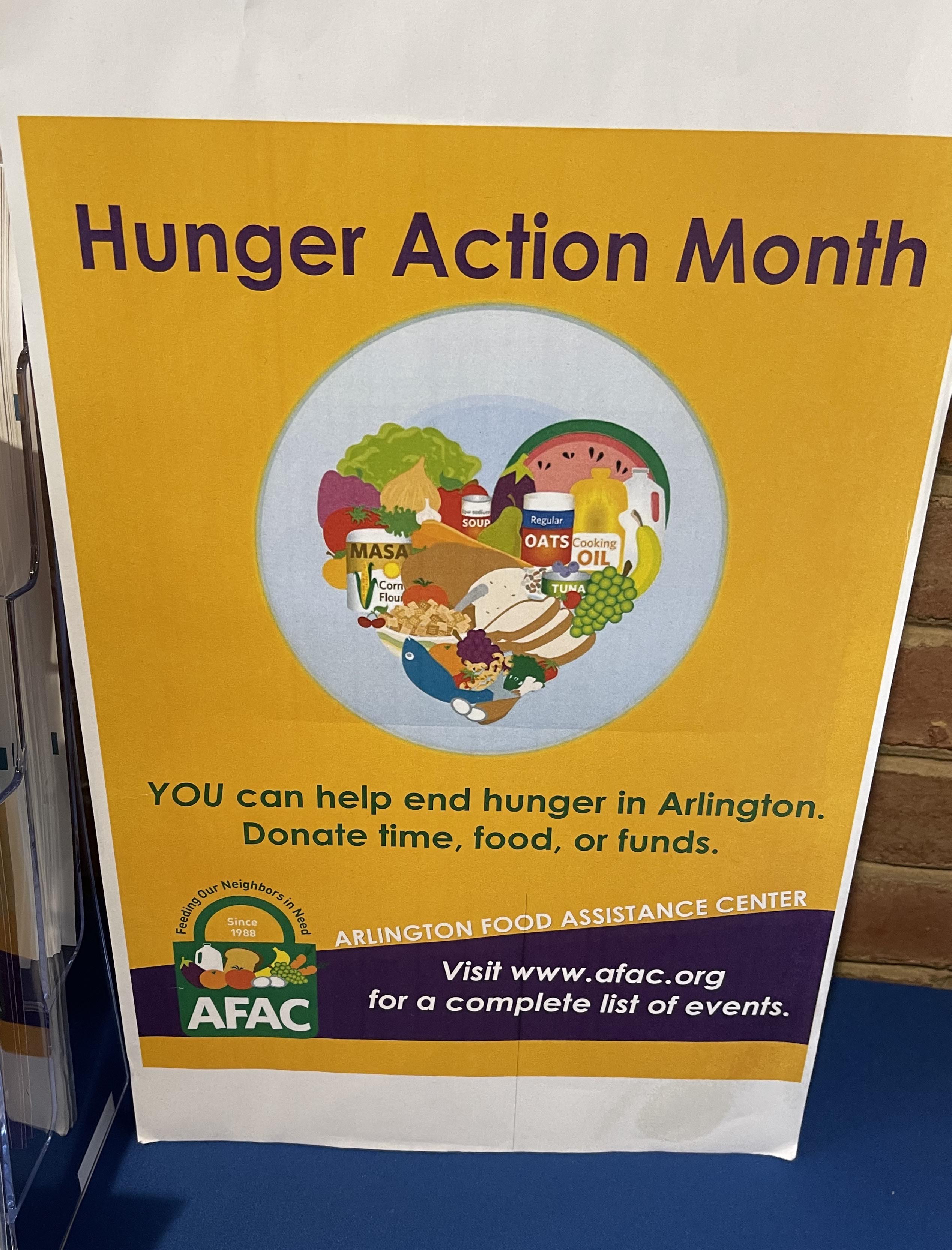Wednesday, October 4, 2023
Charlie Gaylord raised $470 for the plexiglas, plywood, nails and screws needed to build his vision of a Little Free Pantry in November 2020. Gaylord said he had seen a similar concept in Tennessee at a farmer’s market and wanted to try it in Arlington for his Eagle Scout project. It took Gaylord and several other scouts in Troop 106 six hours to construct the project but about 50 hours of planning.
His project hit smack in the middle of the pandemic which was just the right time to meet the need but made the details of the approval process and the completion of the project more difficult. The original intent of the pantry was to serve as a collection point for nonperishable contributions and to donate them to the Arlington Food Assistance Center (AFAC). But over time the pantry has gone further than expected and come to serve its own unique population of homeless and food insecure individuals in Arlington and no longer has a connection with AFAC.
Since it was installed the pantry has been sitting right outside the back of the library next to the “Plot for Hunger” garden lining the sidewalk and growing produce for the Arlington Food Assistance Center. Regulars to the pantry come and go, checking the shelves for the cans of beans and corn, boxes of cereal, cooking oil, bags of rice and occasional chocolate bar.
Over time the winter months have taken their toll as the doors of the pantry have been buffeted by wind, and the deadbolts holding the doors have been warped by the cold, necessitating some minor repairs. But the pantry always seemed to get back in operation.
Now on Sept. 27 during Hunger Month (and banned book week) a notice from the library appeared on the front door of the pantry announcing the pantry would be taken down Friday, Sept. 30. The notice was a surprise and gave no reason. Reactions ranged from anger to disappointment to curiosity.
The notice listed alternate sites where free food would be available and indicated there is an AFAC food collection box inside the library for those library patrons who wish to continue donating food.
The notice said, “If you are hungry there are many places in Arlington to help. To name a few: St. George’s Episcopal Church on Monday, Wednesday and Friday from 12-1 pm, AFAC with varying hours Monday- Saturday and Mt. Olivet United Methodist Church on the second Saturday of every month.
But the regulars say it’s just not the same as being able to stop by the Little Free Pantry whenever you want to pick up some supplementary food. “You could go every day if you want. You could go at midnight or four in the afternoon. What if you’re hungry on Thursday? There were no restrictions. And what are we supposed to do finding out at the last minute when we couldn’t plan and we have no transportation to go somewhere else.”
The Connection was unable to reach Diane Kresh, Director of Libraries, for comment but Anneliesa Alprin, Communications Manager for the Public Library, released this explanation. She says since the Little Free Food Pantry was built and installed it has been maintained and stocked by community members, the Friends of the Arlington Public Library and library staff.
“Post-COVID the Library can no longer support the Little Free Food Pantry. Several factors contributed to making this difficult decision. The Library’s inability to monitor the Pantry to ensure its structural stability, food safety of its contents, public health standards in keeping it rodent and pest free and appropriate usage.
“The library does not have the staff capacity, expertise or knowledge necessary to maintain an effective food pantry program that meets best practices and is sustainable.”
Alprin says, “The County Board and the County Manager were made aware of this decision as well as leadership at the Department of Human Services and AFAC. The Library Director also notified the family of the scout whose generosity of spirit and concern for the welfare of others led to the Pantry’s creation. Libraries was involved due to the fact that the Director, Diane Kresh, was one of the leaders addressing food insecurity during the pandemic.”
In addition, she explains that the Food Security Strategic Plan for Arlington adopted in October of 2020 didn’t identify the immediate area surrounding the Central Library as as neighborhood with unmet needs that would need increased food access.
 AFAC collection boxes are located inside the Central library and most branches as well as businesses and county offices. AFAC also posted Hunger Month information inside five library branches.
AFAC collection boxes are located inside the Central library and most branches as well as businesses and county offices. AFAC also posted Hunger Month information inside five library branches.